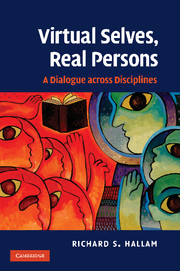Book contents
- Frontmatter
- Contents
- Acknowledgements
- Part I A constructionist framework for person and self
- Part II Person and self in science
- 8 Philosophy's legacy to a science of self
- 9 Self in mind and brain
- 10 Self, person as agent and natural causation
- 11 Self in child development
- 12 Self in human evolution
- 13 Loose ends and split hairs
- Bibliography
- Index
10 - Self, person as agent and natural causation
Published online by Cambridge University Press: 04 August 2010
- Frontmatter
- Contents
- Acknowledgements
- Part I A constructionist framework for person and self
- Part II Person and self in science
- 8 Philosophy's legacy to a science of self
- 9 Self in mind and brain
- 10 Self, person as agent and natural causation
- 11 Self in child development
- 12 Self in human evolution
- 13 Loose ends and split hairs
- Bibliography
- Index
Summary
A person's agency – that is, their power to act with deliberation according to the demands of a situation – is difficult to reconcile with naturalism. One contentious issue is how we can be both naturally determined and morally responsible. I will deal with the subject of agency very broadly and try to put the question of causality in a philosophical and historical context. Personists assign the power of agency to the person. This leaves them with the task of explaining how persons can be causes and how the agency of persons differs from the agency of animals. Sub-personal theories have to show how an ‘executive mechanism’ in the mind or brain can account for the sense people have of being aware of their reasons for acting and their belief that it is they who are in control. Supra-personal accounts of agency face similar problems in so far as they dissolve distinctions between events caused by persons acting intentionally and natural processes taking place between persons. And when agency is explained as the product of social practices and social structures, the sense of a person having any autonomous control seems to disappear.
Some psychologists, such as Jack Martin and Jeff Sugarman (2003), take a middle position between biological and cultural determinism. They adopt a systems view (see Chapter 13) in which levels of reality are nested.
- Type
- Chapter
- Information
- Virtual Selves, Real PersonsA Dialogue across Disciplines, pp. 191 - 214Publisher: Cambridge University PressPrint publication year: 2009



